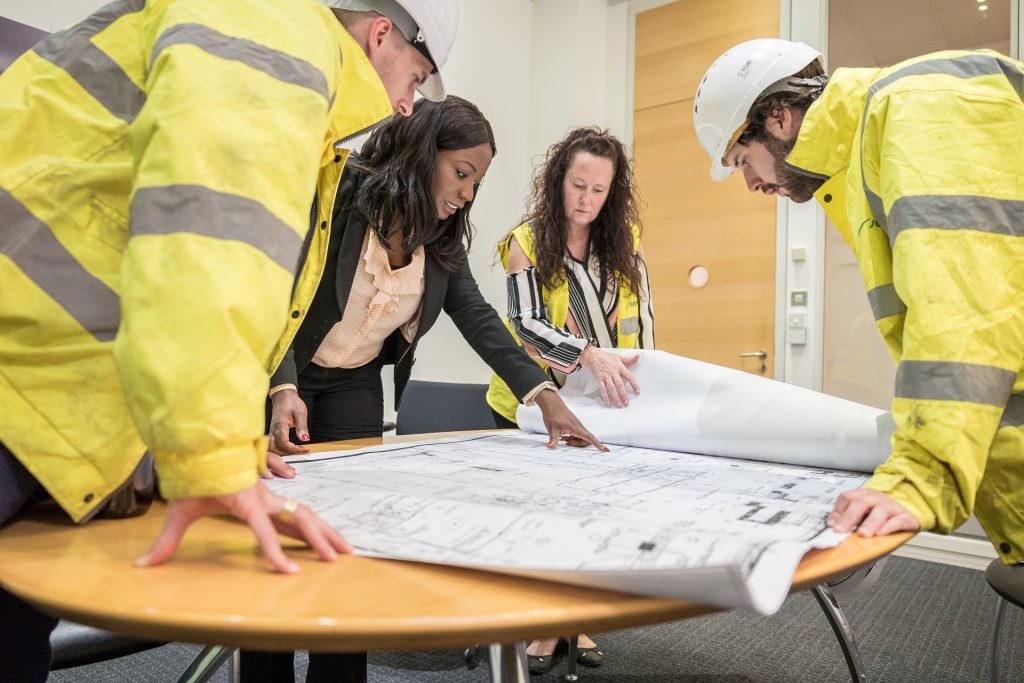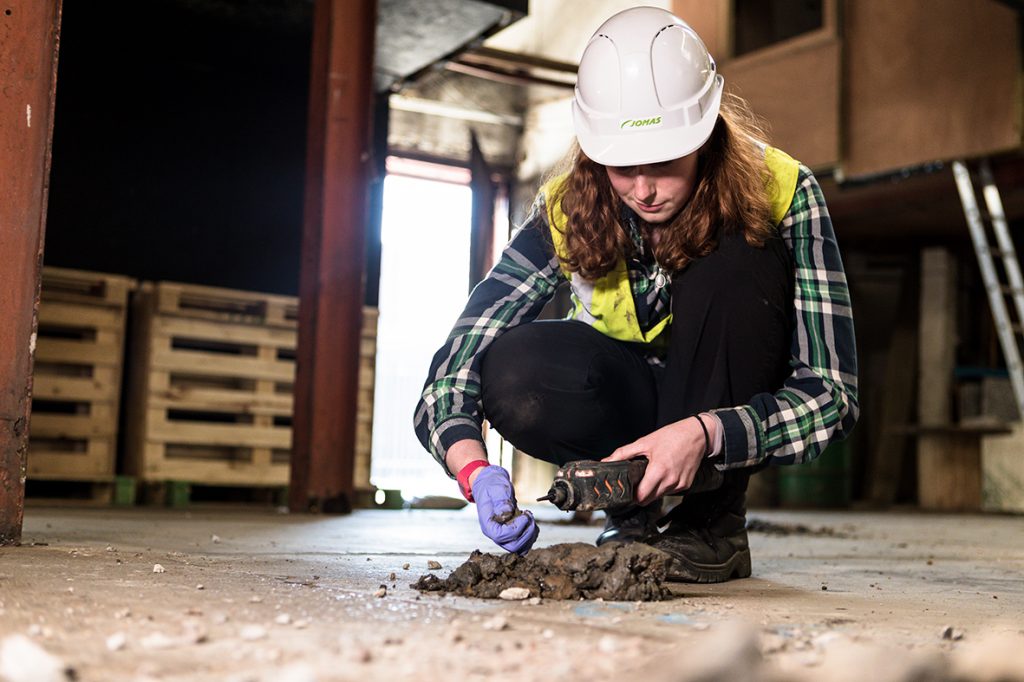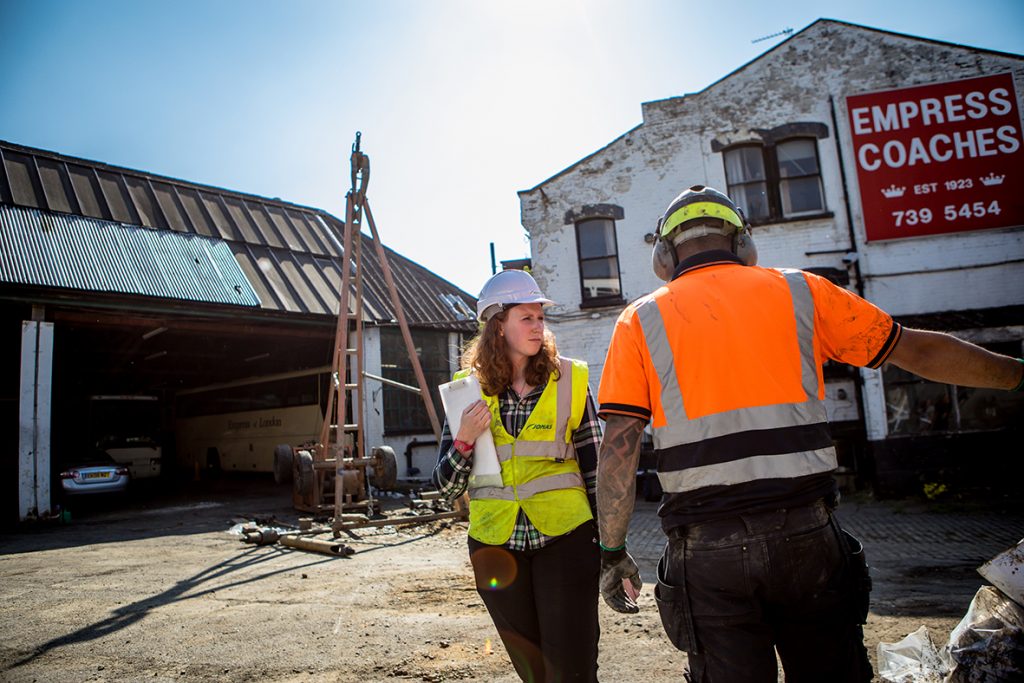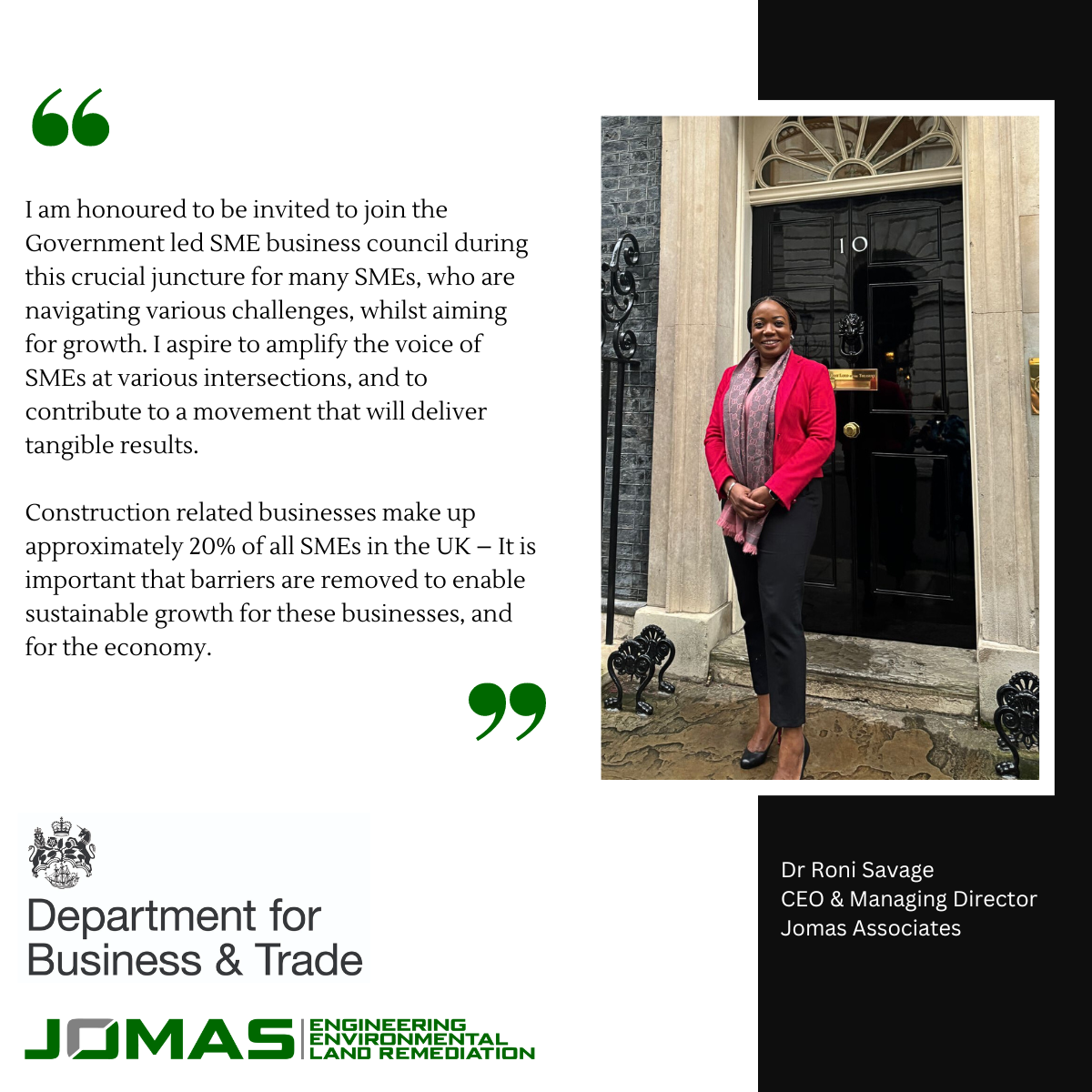Guest blog by Roni Savage, member of the FSB Women in Enterprise Taskforce
My name is Roni Savage, and I am the managing director of Jomas Associates Ltd, an engineering and environmental consultancy I set up in 2009 to serve the construction industry. We undertake investigations for residential, community, retail, industrial and commercial schemes, working for land developers across the UK. Supported by my amazing team, we endeavour to offer our clients a rapid, high value, high quality service that is unrivalled. I am proudly a female engineer, breaking the mould in what has traditionally been a male dominated engineering industry.

Employing almost three million people and generating approximately £100billion every year for the UK economy, the industry is vital to the nation’s prosperity. While investment in construction projects continues to rise, the workforce does not appear to be growing as quickly. Far too few apprentices and graduates are entering the sector, and finding suitable skilled workers is a challenge.
As the industry cries out for skilled personnel, companies must attract a more gender-balanced workforce.
- The industry must focus on developing existing talent, equipping them with appropriate training and knowledge to succeed, and to be retained.
- Construction and engineering careers should be promoted to more women.
Women are still woefully under-represented in the engineering and construction sectors, to the detriment of our economy. Statistics from Women’s Engineering Society show there has been very little change over the years in female uptake of and achievement in STEM subjects at GCSE. In 2016, 20 per cent of A-level physics students were girls – that figure has not changed for 25 years, resulting in approximately only 11 per cent of the engineering workforce being female.
Too few women see construction and engineering as viable career paths. Yet, both offer fulfilling and amazing possibilities, which I can attest to from my experience.
Following discussions with several women, I have highlighted some of the reasons which may be preventing women from taking up engineering. Firstly, careers in engineering and construction have been seen as jobs for men, not women. Some women may even consider that they are not physically able to undertake such jobs.

Others see barriers to career progression in such a male dominated and many women in the sector feel they have to shout louder than men to be heard. This is highlighted by the gender pay gap in the construction sector. According to the ONS, it stands at 45.5 per cent with women paid an average hourly rate of £8.04 compared with £14.74 for men.
More must also be done to retain women who find it difficult to re-enter the industry after career breaks or after having children.
If the construction industry is to deliver the many essential infrastructure projects, worth billions to the economy, already planned, it must keep the female workforce in place, and also continue to attract new female talent.
The sector itself needs to evaluate why so few women are coming through – or staying in engineering – and companies should take action to address this to ensure there are welcoming places for women to work and succeed.

As International Women in Engineering (WIE) day approaches on 23rd June 2018, we need to address a general deficit in talent in engineering and empower women. Role models and WIE ambassadors are essential to this.
Both women and men working in STEM need be vocal about the challenges, joys and possibilities to inspire the next generation of girls.
I have enjoyed a successful career as a woman in STEM. It has, at times, been a huge challenge, but I remain resilient. I am also a mother to three boys, and have demonstrated that a woman can achieve in engineering, whilst also building a family. I love construction and everything about the built environment, my passion sees me through.
There are other women like me in engineering and construction – but there are still not enough – it is time for change.



